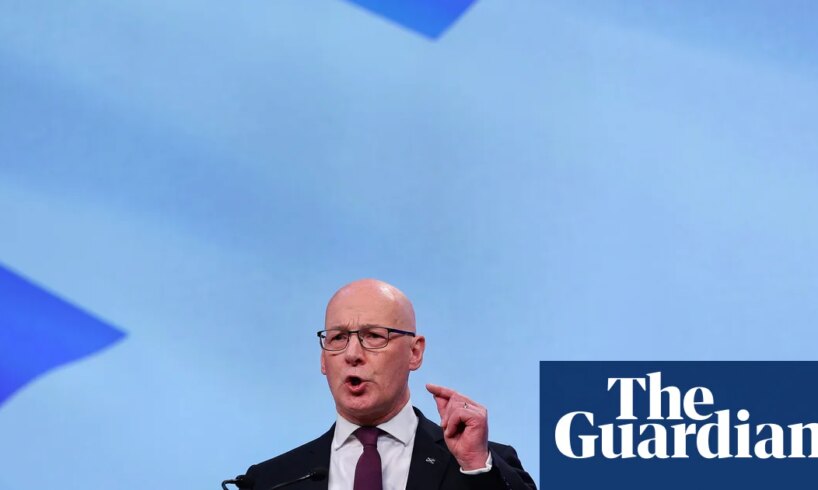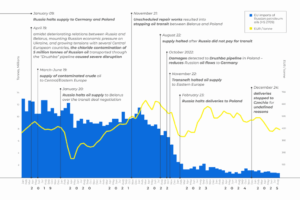
SNP members have overwhelmingly backed leader John Swinney’s “clear and unambiguous” independence strategy that a majority election win is the only route to another referendum.
On the first day of the party’s annual conference in Aberdeen, the vast majority of members backed the leadership’s motion that next May’s Holyrood elections should be fought on a “clear platform of national independence” and that winning a majority in the Scottish parliament – by securing 65 seats or more – would be “the only uncontested way to deliver a new vote on Scotland’s future”.
After a passionate – and at times highly technical – debate, the conference rejected a rebel amendment put by more than 40 local branches that set out a more fundamentalist strategy of treating next year’s election as a de facto referendum, meaning that if the SNP and other pro-independence parties win a majority of the popular vote in 2026, it should be treated as a mandate to open independence negotiations directly.
This de facto idea was first promoted by the former party leader and first minister Nicola Sturgeon, who acknowledged it as a “mistake” in her recent memoir.
Echoing the confidence of SNP strategists reported in the Guardian yesterday, Swinney told the packed conference hall that “we are within touching distance of the 65 seats that will make the world sit up and take notice” and urged the party to back taking a “clear, unambiguous message” to the public. Depute leader Keith Brown, who seconded the motion, told delegates: “The only way we can achieve independence is to ask a clear question and get a clear answer.”
This call to clarity is key: while independence is not high on the list of voters’ priorities, activists have unhappy memories of trying to explain what many believed was a fatally muddled independence strategy on the doorstep for the general election last year, where the SNP was humiliated by the resurgent Labour party, losing 38 of its 48 Westminster seats.
A year on, the party’s pivot to its core message is a mark of renewed confidence, with the SNP once again leading the polls ahead of Scottish Labour and Reform UK, and an understanding that the battleground demographic for the coming campaign is made up of those “soft yes” independence supporters who have drifted away from the party.
Speaking for the de facto amendment, veteran activist Graeme McCormick insisted that it was not proposed by “romantic nationalists”. He warned that the SNP was being “hollowed out” because it had failed to inspire its membership with a date for another referendum.
The former MP Tommy Sheppard said it was “remarkable” that such a large conference was able to have such a detailed discussion in public and in front of the media, but insisted there were “no quick fixes”. “We have been chasing the next election for too long,” he said, arguing that the party needed a strategy to take it into the 2030s and deepen support for independence.
skip past newsletter promotion
Our morning email breaks down the key stories of the day, telling you what’s happening and why it matters
Privacy Notice: Newsletters may contain information about charities, online ads, and content funded by outside parties. If you do not have an account, we will create a guest account for you on theguardian.com to send you this newsletter. You can complete full registration at any time. For more information about how we use your data see our Privacy Policy. We use Google reCaptcha to protect our website and the Google Privacy Policy and Terms of Service apply.
after newsletter promotion
Regardless of leadership optimism, a majority remains a high bar given Holyrood’s proportional electoral system – the SNP has only won a majority once, under Alex Salmond in 2011.
Keir Starmer has repeatedly said he would not grant Holyrood the power to hold a second vote on independence.





